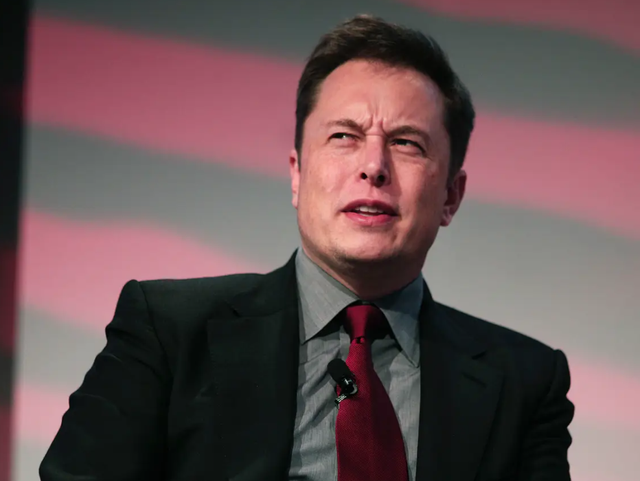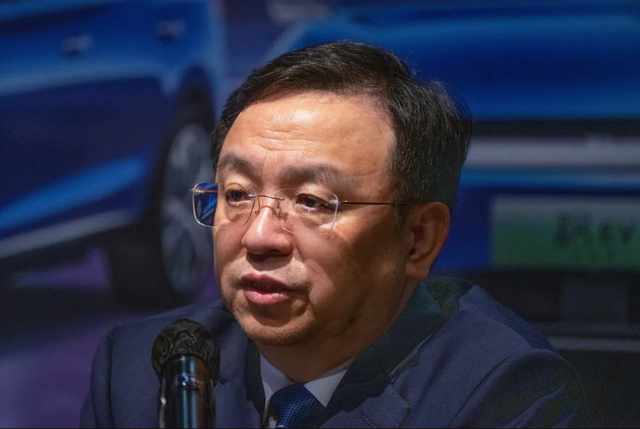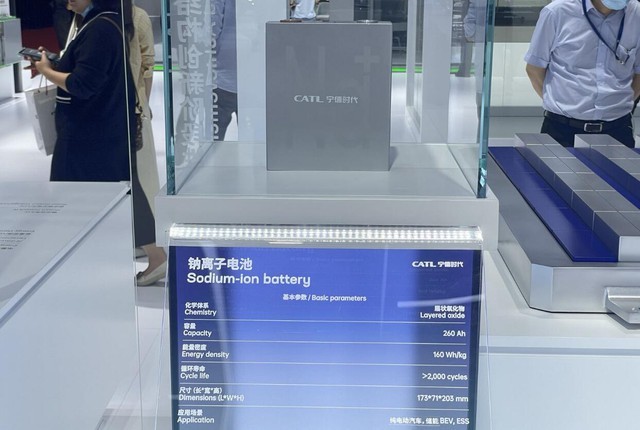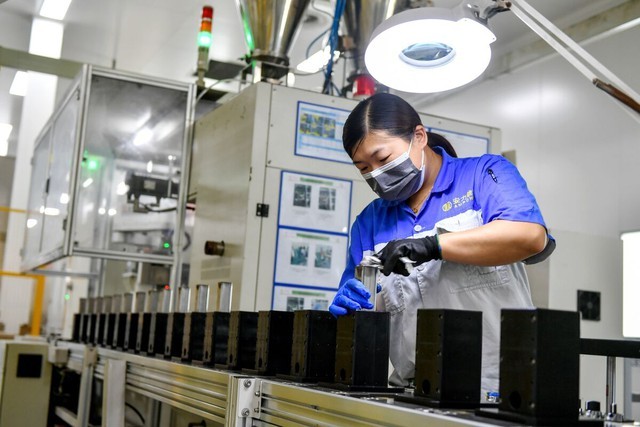Nokia was once proud to be the largest phone company in the world but then was “overthrown” simply because it refused to improve. Will Elon Musk fall into the same trap of not being able to launch any new electric cars over the past few years, while China is creating a second industry revolution?

Bloomberg news agency said that large corporations have begun to invest money in battery technology salt, thereby showing that a The second electric vehicle revolution is about to begin.
Salt (Sodium), commonly found widely in salt mines or seawater globally, could become a potential option for electric vehicle energy storage with the advantage of being cheaper and more abundant than Lithium.
However, despite having a similar chemical structure, Sodium is still not commonly used in the electric vehicle industry due to its lower performance than Lithium on the same molecular size.
However, technological breakthroughs are gradually changing this and turning salt batteries into a new revolution in the electric vehicle industry.
Last week, Sweden’s Northvolt AB announced a breakthrough in salt battery technology, while Chinese electric vehicle company BYD signed a contract to build a salt battery factory worth 1.4 billion USD.
Previously in April 2023, the world’s largest electric battery company, China’s CATL, announced that it would apply this new technology to electric vehicles this year.
“These are extremely serious investment projects. These plans create great confidence for investors when companies declare that they are ready to expand their scale to commercialize new technology,” said Benchmark Intelligence research expert Rory McNulty.

BYD Chairman Wang Chuanfu
A wake-up call for Elon Musk
According to Bloomberg, if salt batteries are truly successful, they will limit the current consumption of Lithium, which is said to pollute the environment when exploited.
At the same time, this is also a warning sign for electric car manufacturers like Tesla if they continue to cling to their leading edge in the market without changing or updating new technology. The lessons of large corporations that dominated the industry but were overthrown just because they refused to innovate like Nokia are still there.
In the past few years, Tesla has hardly launched any new product lines, only minor updates to older car models. Even the Cybertruck electric pickup project was said to be facing difficulties and had to postpone the delivery deadline until 2024.
Returning to salt batteries, Bloomberg believes that although the energy density of the new technology is lower than Lithium, they can completely become an alternative for short-range, urban electric vehicles. and regularly charged.
In addition, salt batteries can also be used to store energy for the grid system, where energy density and battery size are not obstacles.
Bloomberg news agency said that the explosion of the electric vehicle industry has caused the price of materials such as Lithium, Cobalt or Nickel to skyrocket, leading to a series of polluted mines.
It is the rising cost of these materials coupled with the cooling trend of electric vehicles that has forced corporations to turn to cheaper options like salt batteries.
“Salt batteries will balance Lithium supply and demand in the market, reducing the price increase of this material that is too expensive,” said director Sam Adham of consulting firm CRU Group.
Alternative choice
According to Bloomberg, even if Lithium prices cool down because electric vehicle sales are not as high as expected, salt batteries are still much cheaper.
Currently, electric cars still mainly use Lithium batteries, but this material is scarce, expensive and extremely environmentally polluting, contrary to the “green vehicle” label that the electric vehicle industry still promotes. The Lithium supply chain also becomes a problem when exploiting and transporting it in a stable manner will cost a lot of money.
However, China is looking to replace Lithium with Sodium, a cheaper material with a price only 1-3% of Lithium but with nearly the same chemical structure.
The New York Times (NYT) said that China’s recent breakthroughs in Sodium battery technology have made it possible for products to be charged within a day and used continuously for many years, thereby erasing the advantage of Lithium batteries.

CATL salt battery products
Even the capacity of Sodium batteries is gradually being increased in China’s research process, moving towards creating a comprehensive revolution, consolidating the dominant position of the global No. 1 electric vehicle market.
Besides, while Lithium batteries cannot retain energy if the temperature drops too far below freezing, Sodium batteries can completely do this, an extremely big advantage for electric vehicle manufacturers in developing countries. The market has cold winters like Northern Europe.
In interviews with NYT, a series of Chinese battery industry directors said that technological breakthroughs made it possible to install Sodium batteries in the same device as Lithium batteries.
Even the world’s largest electric vehicle battery group in China, CATL, has mixed these two types of batteries together to take advantage of the low cost, weather resistance of Sodium with the long-lasting advantage of Lithium. .
CATL said that in the near future they will put into mass production a new battery line to create a second revolution for the entire electric vehicle industry.
“We are ready to mass-produce that battery line,” director Huang Qisen of CATL’s research institute in Ningde-China affirmed.
“This new technology will reduce the need for overheating with current Lithium. I confirm that we will see Sodium gradually replace Lithium in many areas,” said CEO Mike Henry of BHP, the world’s largest mining company.
So while Tesla built a super Lithium battery factory in China next to its existing factory in the US, and governments of other countries rushed to increase battery production, the world’s No. 2 economy took steps. progress in new technology.
Originating from America, shining thanks to China
What is surprising is that it was not China but the United States that first began researching the use of Sodium for batteries in the world in the 1970s. Next, Japan became the leading economy in research in this field. This was more than ten years ago.
However, until recently, China was the tycoon in the field of research and commercialization of this Sodium battery technology.

A salt battery factory in Zhejiang province, China
Benchmark Minerals data shows that of the 20 Sodium battery factories that are being planned or have been started, 16 projects are located in China. Thus, in just the next 2 years, this Asian powerhouse will hold up to 95% of the global electric vehicle industry’s Sodium battery output.
China’s progress in this segment has reached the point where it will launch several models using Sodium batteries at the upcoming electric car show in Shanghai.
However, many experts believe that Sodium batteries have limitations such as needing more space than Lithium batteries when holding the same amount of electricity. However, this will gradually disappear thanks to advances in research.
Even now, a series of businesses such as electricity supply, wind power, and solar energy are also interested in Sodium batteries because the space consumption is not a problem, while the cost advantages are great. Cheap, weather resistant is what they need.
Industry consultant Frank Haugwitz said many areas in China have installed Sodium batteries for wind and solar power to store 10-20% more electricity used.
Unlike Lithium batteries, Sodium batteries do not require Cobalt, an expensive and scarce material that is raising human rights issues in mining mines in Africa. They also do not need Nickel, a mineral that comes mainly from Russia, Indonesia or the Philippines.
“Yes, Sodium will play an important role in the electric vehicle industry and China is at the forefront of this research,” said expert David Fishman of consulting firm Lantau Group.
News
Dave Crosby, the individual who captured the attention of all three Voice Judges in record time. Watch his incredible performance – it’s truly astonishing!
From the moment he graced the stage, it was evident that a remarkable performance was about to unfold. As Dave serenaded the room, a captivating melody filled…
Tom Brady Sparks New Dating Rumors After Being Spotted Out At Dinner With Popular Sideline Reporter
Tom Brady has set off another wave of dating speculation following his brief romance with Irina Shayk. According to TMZ, the former NFL star was spotted out in Beverly…
REPORT: Several Chiefs & Dolphins Players Suffered Frostbite During Saturday’s Grueling Playoff Showdown
Multiple players are said to have suffered frostbite during Saturday night’s playoff showdown between the Kansas City Chiefs and Miami Dolphins at Arrowhead Stadium. The game was the fourth-coldest in NFL…
Female Eagles Fan Unleashed All Sorts Of Cruel, NSFW Insults Towards Bucs Fans After Her Team’s Ugly Wild Card Loss In Tampa (VIDEO)
A female Eagles fan went off on Buccaneers supporters after having to sit through a frustrating Wild Card fixture in which her team put just nine points…
Female Eagles Fan Unleashed All Sorts Of Cruel, NSFW Insults Towards Bucs Fans After Her Team’s Ugly Wild Card Loss In Tampa (VIDEO)
A female Eagles fan went off on Buccaneers supporters after having to sit through a frustrating Wild Card fixture in which her team put just nine points…
Jalen Hurts Had An Interesting 7-Word Response After Being Asked If He Wants Nick Sirianni To Remain The Eagles’ Head Coach (VIDEO)
Jalen Hurts has taken an exit at the first opportunity as his Eagles are out of the playoffs following a season in which they raced to 10-1 before…
End of content
No more pages to load











